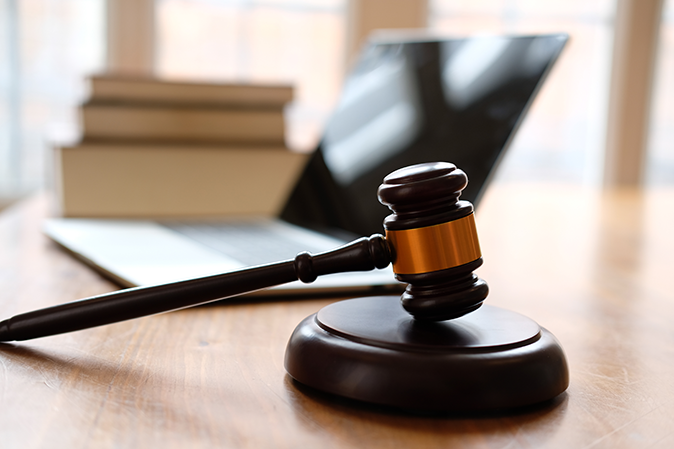- videocam On-Demand Webinar
- card_travel Corporate Law
- schedule 90 minutes
In-House Counsel: Protecting Legal Privilege When Working With Outside Public Relations Firms
Third-Party Waiver Exception Doctrine and Best Practices in Compliance With Kovel and Copper Market Antitrust Litigation
Welcome to BARBRI, the trusted global leader in legal education. Continue to access the same expert-led Strafford CLE and CPE webinars you know and value. Plus, explore professional skills courses and more.
About the Course
Introduction
This CLE course will prepare in-house counsel to protect confidential business communications that may be shared with public relations firms in the course of protecting the company's public image or handling a current crisis. The panel will address the standards of meeting the third-party exception doctrine defined in a recent series of cases and best practices for protecting communications and attorney work product.
Description
Companies may consider engaging a public relations firm to help them address issues that may gain public attention. This may become particularly important in a COVID-19 world, as customers and others scrutinize statements and actions relating to safety precautions and procedures. Companies are finding their communications with PR firms at the center of some legal challenges.
Once litigation starts, discovery requests will include communications with the company's PR firm, including those with the company's in-house and outside counsel. While counsel may believe these communications are protected by attorney-client privilege, the privilege recognizes two exceptions: (1) the necessity test and (2) the functional equivalent test. When and how these exceptions are recognized are fact- and jurisdiction-specific. Rather than assuming privilege, counsel must consider the information communicated to PR firms by the company, the nature of the PR firm's role, and whether litigation is real or threatened. The result is that this area of privilege law is fluid and outcomes vary.
In litigation and beyond, counsel should evaluate why a PR firm is needed and what information is provided. Counsel must document the client's relationship with the PR firm and separating engagements from general public relations and when litigation arises is key. In-house counsel must be mindful of communicating with a PR firm when no litigation is pending, particularly when the company hired the PR firm regarding its regular business operations.
Listen as our authoritative panel guides how in-house and general counsel can communicate and work with public relations firms while still maintaining privilege. The panel will provide best practices to help position a company to protect itself when it needs it most.
Presented By

Ms. Fisher is a Troutman Pepper Retired Partner and is currently a Fellow of the Pepper Center for Public Service, pursuant to which she continues to work on multiple social policy and immigration matters. She has written and presented extensively on attorney client privilege issues, electronic discovery developments and social media discovery.

Mr. Hamilton is a civil litigator and e-discovery counsel with over 24 years of experience representing clients in complex pharmaceutical products liability and commercial litigation, with an emphasis on the defense of federal multidistrict litigation, coordinated state court actions, class actions, and other complex matters. His practice encompasses all phases of e-discovery litigation, training and management of contract counsel, and alternative legal service providers. He is certified in legal project management and legal lean sigma, with a singular focus on client value.

Ms. Tarver defends primarily pharmaceutical and medical device companies in litigation involving mass tort, personal injury and wrongful death claims in state and federal courts across the United States. She has experience in all aspects of discovery, trial preparation, and trial practice including taking and defending depositions, motions practice, witness preparation, trial strategy development, and witness examinations at trial. Ms. Tarver has experience serving as trial counsel for a global tobacco manufacturer in trials across the United States, from Massachusetts to the U.S. Virgin Islands.
-
This 90-minute webinar is eligible in most states for 1.5 CLE credits.
-
Live Online
On Demand
Date + Time
- event
Thursday, April 22, 2021
- schedule
1:00 p.m. ET./10:00 a.m. PT
- Reasons to engage a PR firm
- Litigation
- General public image
- Privilege
- Overview
- Waiver
- Exceptions to waiver
- Necessity test
- Functional equivalent test
- Best Practices to preserve privilege
- Documentation
- Engagement agreements
- Billing
The panel will review these and other important topics:
- Reasons to engage a PR firm: during litigation and outside litigation
- What types of communications are privileged and work-product privileged
- Standards for the necessity test
- Standards for the functional equivalent test
- Best practices for documentation and billing
Unlimited access to premium CLE courses:
- Annual access
- Available live and on-demand
- Best for attorneys and legal professionals
Unlimited access to premium CPE courses.:
- Annual access
- Available live and on-demand
- Best for CPAs and tax professionals
Unlimited access to premium CLE, CPE, Professional Skills and Practice-Ready courses.:
- Annual access
- Available live and on-demand
- Best for legal, accounting, and tax professionals
Unlimited access to Professional Skills and Practice-Ready courses:
- Annual access
- Available on-demand
- Best for new attorneys
Related Courses

Multinational Data Privacy Compliance: Managing EU and UK Regulatory Requirements
Tuesday, March 24, 2026
1:00 p.m. ET/10:00 a.m. PT

California Climate Disclosure Laws: Compliance Strategy for SB 253 and SB 261
Available On-Demand
Recommended Resources


Expert Interview: Tara Waters and How AI Can Bring People Together
- Legal Technology

